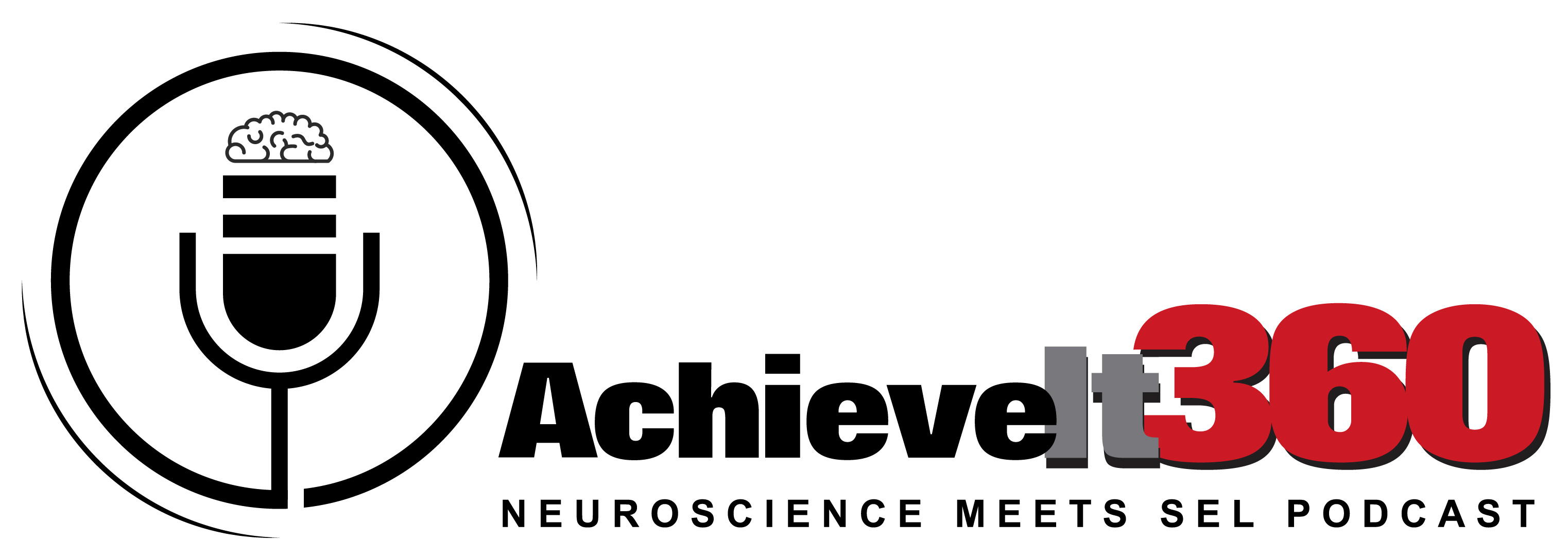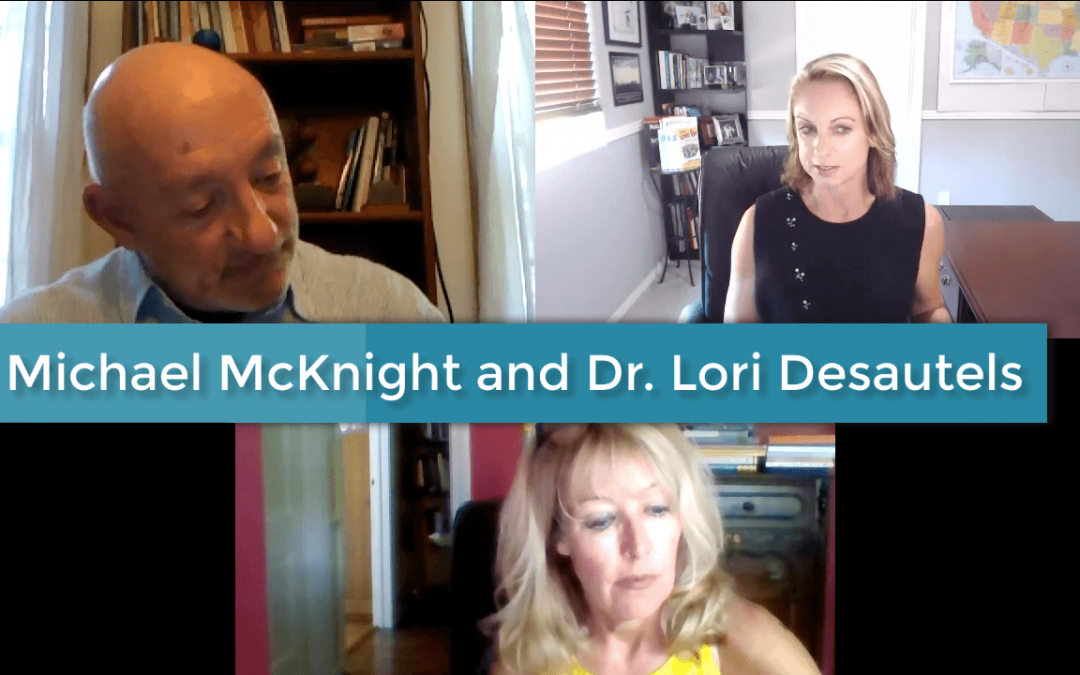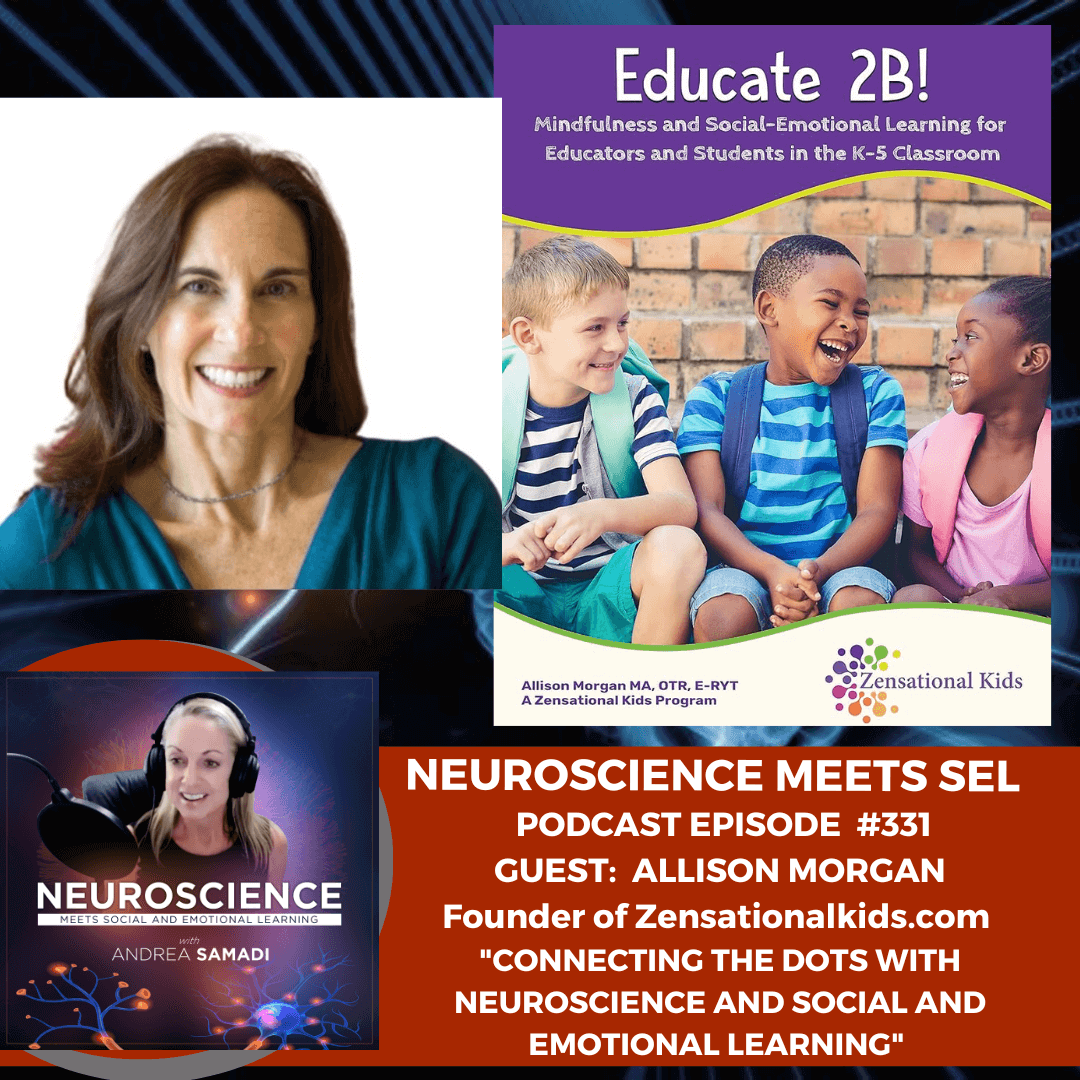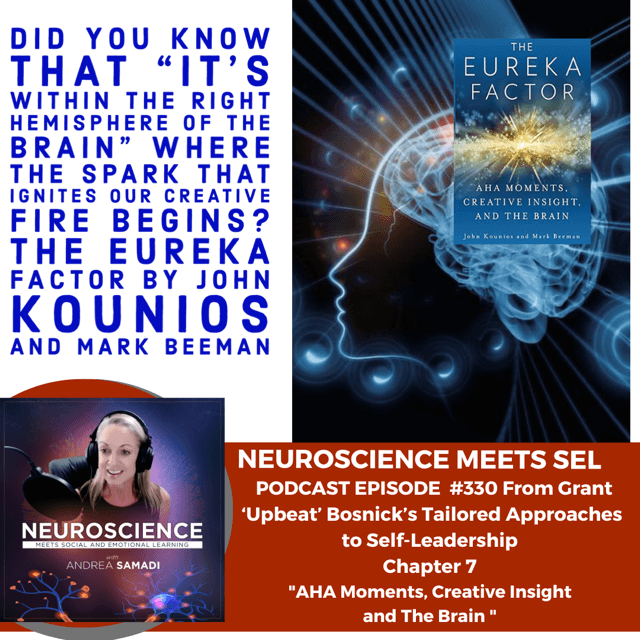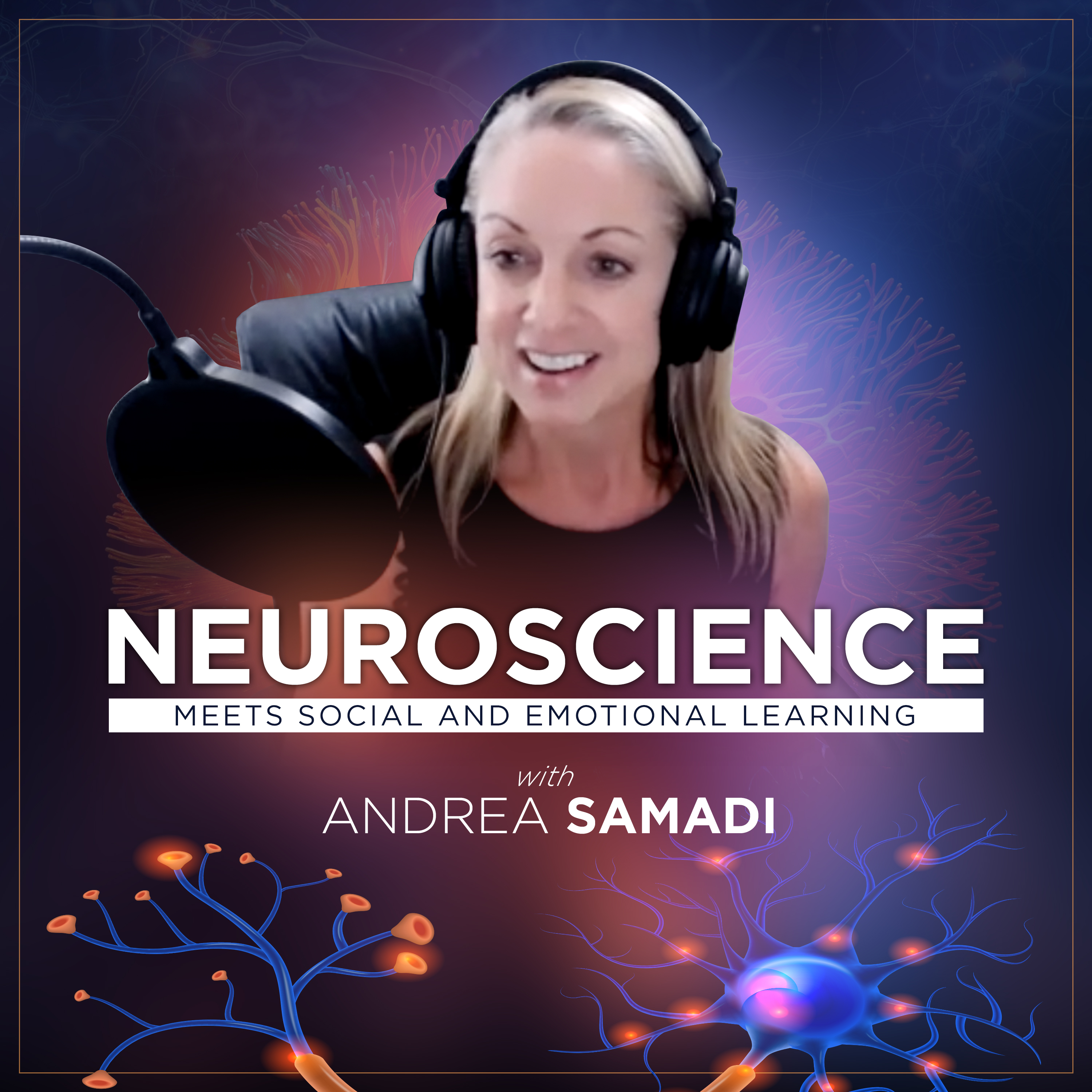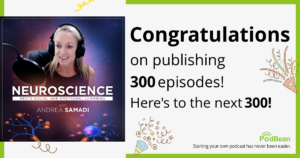Today we have two pioneers in the field of educational neuroscience; Lori Desautels and Michael McKnight. I first found Lori from her TEDx Talk from Indianapolis[i] when I was searching for anything in the field on educational neuroscience back in 2014. It was 5 years ago that I partnered with Arizona’s Dept of Education and was urged from an Arizona educator to write another book that focused on the brain science behind learning, and back then there wasn’t as much information out there as there is now in this field. I found Judy Willis[ii], and learned about the amygdala highjack, read David Souza’s “How the Brain Learns” and John Medina’s “Brain Rules” and hired a neuroscience researcher (named Mark Robert Waldman[iii] ) so I could be sure I had the correct understanding of the brain and learning, but still needed some help to tie everything together. Finally, I found Lori, and watched her videos to understand the other parts of the brain and how they are interconnected. In Lori’s Ted Talk, she mentioned that “neuroscience and education have come together” and it’s a huge connection because every day experiences change the brain structurally and functionally—and I thought, this is incredible that we can finally explain how we can accelerate learning with this understanding of the brain. And then through Lori, had a chance to see Michael’s work and dive deeper into understanding Adverse Childhood Experiences. So, thank you for all you are both for pioneering this field, and helping so many around the world to understand what at first might seem like complex concepts, (if like most of us, we’ve not had a crash course in how our brain works) so this is groundbreaking by making this all so relatable for everyone.
I’m thrilled to finally “meet” you both, face to face, after many years of emails, social media replies. Please do follow Lori and Michael’s pages as they both share often about the impact; they are igniting in our schools today. I will add their bios in the show notes, so you can learn more, but want to get straight into some questions. Welcome Lori and Michael!
Q1: For new people who are getting to know your work, can you give some background on how you both met and began working together, leading to you writing your two books “Unwritten, The Story of a Living System”[iv] and your most recent book that I haven’t been able to put down “Eyes are Never Quiet: Listening Beneath the Behaviors of our Most Troubled Students”[v] and if you could explain the new movement of being trauma informed?
Q2: I can ask this next question two ways, the first focuses on the problem when I ask “what could we possibly do to make an impact on our schools and students today knowing we are in a crisis with drug use, bullying, suicide and suicide ideation, and anxiety” or I could ask it from this point of view where we change the narrative and focus on the solution by asking “how does shifting away from the traditional disciplinary approach to acknowledge the impact of stress on behavior and our students’ ability to focus and learn” shift the results you are both seeing in our schools today?
Q3: Can you explain what educators, and parents should understand about the brain and how our emotions impact learning?
Q4: I know firsthand about stress in the classroom—my first teaching assignment was a behavioral class back in the late 1990s. Like many teachers, I burned out before I even got started and if you were to ask ANY of my friends back then, I was the least likely to quit. Chapter 1 of your book “Eyes are Never Quiet” was eye-opening and even brought tears to my eyes with the advice that Michael gave an educator (who Lori shared was her daughter making the story even more impactful) because she was at the end of her rope in the classroom. I remember exactly how frustrating that felt and didn’t make the decision to quit and leave the profession quickly—but it did make me wonder—especially with the crisis around teacher shortage, what would happen if ALL new teachers were given Michael’s advice, and found strategies to thrive, not just survive in this profession?
Q5: What is your vision for your work? Where would you like to see the most impact/change?
Q6: What is your vision for the standards in the US as they relate to SEL/neuroscience/health and well-being and how can advocates with this work make sure that all states align as new standards are being created?
Q7: What about the educational publishers? What should they consider when creating new curriculum that aligns with these new standards and important developmental benchmarks for students?
Q6: Do you both have any final thoughts or words of wisdom to leave us encouraged as we continue to learn more about how emotions and learning are intimately connected and processed in the brain? Is there anything I might have missed that you think is important?
Thank you both for so openly sharing your knowledge with the world. I urge any listeners who want to learn more about this work to follow Lori and Michael. Lori is @desautels_phd and Michael is S on Twitter. You can find them on Linkedin, Facebook and Instagram to see their strategies in action. Thank you both.
BIO
Dr. Lori Desautels, is an assistant professor at both the undergraduate and graduate levels at Butler University in Indianapolis. Lori’s passion is engaging her students through neuroscience in education, integrating Mind Brain Teaching and Learning Strategies into her courses at Marian and now Butler University.
Dr. Desautels designed and teaches the Applied Educational Neuroscience certificate program at Butler. This program is specifically designed to meet the needs of educators, social workers and counselors who work beside children and adolescents that are experiencing adversity and trauma.
Lori has conducted workshops throughout the United States and abroad. Lori’s second book was published in January 2016, “Unwritten, The Story of a Living System,” co-authored with Michael McKnight and they recently published “Eyes are Never Quiet: Listening Beneath the Behaviors of Our Most Troubled Students”[vi] that should be required reading for parents, educators, and counselors looking to understand the impact of stress on behavior in today’s schools.
Michael McKnight is currently an educational specialist for the New Jersey Department of Education working in the Cape May and Atlantic County Office of Education. Michael works closely with the 42 school districts in the counties and is involved with a wide range of school issues.
Michael has a passion for creating and supporting Reclaiming Environments for “at-risk” children and youth as well as the adults who serve them.
He has been involved with program and staff development for over 30 years. He views himself, not as an expert, but as a learner and a teacher who has always enjoyed building strength-based cultures with others.
[i] A Call to See and to Serve in Education Lori Desautels, YouTube published Nov. 26th, 2012 https://www.youtube.com/watch?v=n9KhDjGGHCk
[ii] Judy Willis What Do Teachers Need to Know About the Brain YouTube published April 23, 2013 https://www.youtube.com/watch?v=2GdufhdthFo
[iii] TEDx Conejo published 3/27/10 Mark Robert Waldman on “How to Change the World” https://www.youtube.com/watch?v=yvhCLXEeSDQ
[iv] Lori Desautels and Michael McKnight Unwritten: The Story of a Living System: A Pathway to Enlivening and Transforming Education Wyatt-MacKenzie Publishing (January 9, 2016) https://www.amazon.com/dp/B01AF3OVG0/ref=dp-kindle-redirect?_encoding=UTF8&btkr=1
[vi] Lori Desautels and Michael McKnight Eyes Are Never Quiet: Listening Beneath the Behaviors of our Most Troubled Students https://www.amazon.com/Eyes-Are-Never-Quiet-Listening-ebook/dp/B07ML51Q8G/ref=sr_1_1?crid=3RXFMT86D73A9&keywords=eyes+are+never+quiet&qid=1566934605&s=digital-text&sprefix=eyes+are+never+%2Cdigital-text%2C183&sr=1-1
Podcast: Play in new window | Download
Subscribe: Apple Podcasts | RSS
